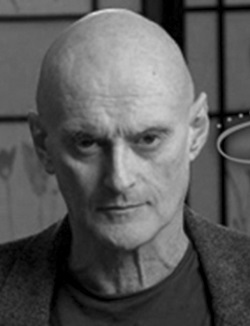|
TRANSLATE THIS ARTICLE
Integral World: Exploring Theories of Everything
An independent forum for a critical discussion of the integral philosophy of Ken Wilber
 Brad Reynolds did graduate work at the California Institute of Integral Studies (CIIS) before leaving to study under Ken Wilber for a decade, and published two books reviewing Wilber's work: Embracing Reality: The Integral Vision of Ken Wilber (Tarcher, 2004), Where's Wilber At?: Ken Wilber's Integral Vision in the New Millennium (Paragon House, 2006) and God's Great Tradition of Global Wisdom: Guru Yoga-Satsang in the Integral Age (Bright Alliance, 2021). Visit: http://integralartandstudies.com Brad Reynolds did graduate work at the California Institute of Integral Studies (CIIS) before leaving to study under Ken Wilber for a decade, and published two books reviewing Wilber's work: Embracing Reality: The Integral Vision of Ken Wilber (Tarcher, 2004), Where's Wilber At?: Ken Wilber's Integral Vision in the New Millennium (Paragon House, 2006) and God's Great Tradition of Global Wisdom: Guru Yoga-Satsang in the Integral Age (Bright Alliance, 2021). Visit: http://integralartandstudies.com
Defending Adi Da SamrajTranscending the Cult of Guru-HatersBrad Reynolds
There are no "perfect masters" in body alone, for any call to "perfection" is only found in their realized state of God-Realization.
Wow!—That did not take long. I posted one article on Integral World [The Pandit: Standing on the Shoulders of the Sat-Guru] (in January 2016) showing the partial influence of Sat-Guru Adi Da Samraj on the early writings of pandit Ken Wilber, then another [The Key is Always Already Here] expressing the freedom found by realizing that God is always already present now—for God or the Divine Condition of all conditions is “always already the case”—then soon thereafter there was posted a critical essay [Gurus and Ivory Towers] critiquing my support of the Sat-Guru. I would have thought the intellectual freedom to acknowledge my personal preference for a Spiritual Teacher and Enlightened Adept would have been more respected… or tolerated. But, once again, the shrill voice of a few can be heard above the silent appreciation of many. Yet this is the nature of our times of instant communication, so anyone with a keyboard can express their opinion—and then that opinion can reverberate back and forth in a cascading “hall of mirrors” with each dissenting voice supporting one another, yet without being checked by the facts (or only their version of the “facts”) thus relying on the angry and distorted comments posted by a few on the Internet. Therefore, I will spend some time to address these concerns, but not exhaustively.[1] To begin with, let me introduce you to the web site www.adidaupclose.org devoted to providing a counter reference (not run by Adidam, Adi Da's official organization) to the critical web sites (listed in Elliot Benjamin's essay criticizing my praise of Adi Da) called “Adi Da Up Close” (including their review of skeptics and critics):
People in the West, mostly those under the influence of the Judeo-Christian tradition, tend to dismiss the function of the Guru, a hallowed distinction of the East, yet it's also one recognized by all of the world's religious traditions since all major religions have been founded by an original Adept. Many Westerners, for instance, have recognized the saving grace of Jesus Christ who died 2000 years ago, although science has blunted his influence. The major difference between the East and West in this regard is the West claims that its Guru is the “one and only” (whether Jesus for Christians, or Mohammed for Muslims), whereas Eastern mysticism believes there are many genuine Gurus, for all human beings can be enlightened or know God, or Reality as it IS, in truth. The function of a genuine Guru or Sat-Guru is to teach us about the truth of God or our Divine Condition, which they have realized for themselves. Thus their knowledge arises from direct experience, not just intellectual philosophy. Some gurus are more powerful and effective than others, for they can be a force in nature, often with special psychic powers (or siddhis) that will help or serve our spiritual progress.
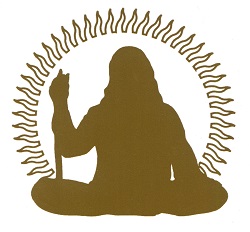
Ultimately, however, our spiritual development is our responsibility, but the Guru is God's principal function serving us directly by cultivating a spiritual relationship with him or her (known as Satsang in Sanskrit). Genuine gurus have something important to offer us that will enrich our lives by guiding us to be better human beings, i.e., if we use them rightly and not cultically. The trouble begins, it seems, when followers of these Teacher-Adepts misinterpret and distort their original Teachings, instructions, and intentions… or fail to realize that their Teacher-Guru is also human, as well as divine (which is actually the case for us all). Gurus, whether male or female, are human, so naturally they are fallible. There are no “perfect masters” in body alone, for any call to “perfection” is only found in their realized state (and stage) of God-Realization (which is where your perfection resides as well). Any decision they make may not be right for everyone, but we Westerners are so quick to condemn anyone who does not live up to our idealized sense of being a perfect, crystal-pure saint, someone with no desires, no genitals, no urge to live a human live, and, basically, these type of people do not exist (except in our mind). So Westerners tend to get angry when our gurus or spiritual teachers act human, which I contend is an illusion that must be seen through. The whole picture must be taken into account; in other words, a Guru's Gifts must be seen as well as any of their errors. Ultimately, it comes down to what you want to focus your attention on: their divine gifts or their humanness. Nonetheless, of course, we must be wise and kind enough to discriminate between authentic gurus and cult leaders. But that is done with sincere investigation of the whole picture, not just looking for human frailties, for otherwise we will have to discount all of our human heroes, from Gandhi to Martin Luther King, Jr., from JFK to Thomas Jefferson, etc., ad infinitum. The problem of religions, in other words, begins when the common ego—or our sense of being a separate self—intervenes from its position of unenlightenment. Westerners who have cultivated a strong sense of individualism (one that is politically expressed in democracy; economically in capitalism) are often shocked by the suggestion these Enlightened Adepts make when they teach the self must be ultimately “surrendered” or “sacrificed” in order to know the Truth of the universe (and of one's own life). Nonetheless, the spiritual process demands such a release from the normal boundaries of the self in order to discover (or re-discover) the no-boundary awareness of the Infinite-Eternal Divine Domain. However, this process of self-surrender or self-transcendence is not an “either/or” proposition. As the integral worldview has shown over the past few decades (exemplified by the teachings of Ken Wilber)—in its attempt to integrate West and East or “marry Freud and Buddha[2]”—the sense of self develops or evolves over time from birth until the maturity of adulthood to produce a strong, viable and functional self or ego. That is, if all goes well, which often it doesn't. As Adi Da has said, “You must become human before you can become spiritual.”[3] Ironically, the personal self must become mature, or have a decent degree of psychological equanimity, before it can adequately begin the spiritual process of transcending its own limitations (or boundaries). This is when the trans-personal aspects of Reality and Truth can be experienced and known. As one transpersonal psychologist humorously put it: “You have to be somebody before you can be nobody.”[4] To the self, to the ego that needs to function in the daily battle of survival, this can be a frightening proposition. Hence, most of us do not take up the recommended path of traditional esoteric spirituality. Most of us, it seems, are content to settle for a strong ego-I. Yet, even then, a true sense of real blissful happiness and peace of mind still evades most of us. In the West, which essentially has no cultural acknowledgement regarding the function of the Guru, and has only begun (since the 1960s) to realize the psychological reality of the transpersonal process of growth, spiritual development seems to be anathema to life's purpose (such as shown on TV). But as transpersonal psychologists have proven over the last 50 years, transcending the self actually liberates a person into a greater embrace of reality generating more love and compassion in all of one's relations (from Nature to other beings). To surrender self in Spirit, in other words, actually frees the self to feel more connected with the deep well of love and bliss that is our true nature. This is exactly why all of the Enlightened Adepts have recommended the spiritual path; in fact, insist it's our birthright and duty to realize this stage of life in its fullness. But how does the separate self learn to transcend itself? Aye, there's the rub. And there is where the function of the Guru and Enlightened Adept comes into play. Thus, to Westerners such people are already suspect for they are asking people to engage in a process that seems to contradict the very task they had to work so hard at becoming: a functioning ego-I. Such is the dilemma Westerners often feel when faced with the wisdom of the East… or when they confront the Teachings of their own historical Adepts (such as with Jesus, the Old Testament prophets, or Mohammed). So instead they often rely on the opinions of the unenlightened, people more like themselves. As beautiful and profound as family and friends, loyalty and commitment to others can be, as exciting as experiences are and wealth may seem (at times)—for, indeed, they define some of the most noble aspirations of humanity, which is why they're the principal content of countless books and movies and all types of art and music—they are still discovered to be fleeting, temporary, and often beset with sudden and tragic change. In other words, no matter how good things get, it never lasts—all things must pass. Often life itself takes over, experiences happen far outside our control: some are dreadful, some are exalted, but sooner or later a person is confronted with: “What is really the Truth?” “Who am I, really?” “What is life all about?” Often these questions are asked in early adulthood, and usually not answered satisfactorily, yet more often it takes a lifetime of experiences before the futility of the outer world becomes apparent. And if life's dilemma doesn't make one ask these questions, death usually will. Which brings me to my love and admiration for Adi Da Samraj. In my previous postings on Integral World this year (2016), I expressed this love and preference for my Sat-Guru, even suggesting his teaching may help others realize the truth of Reality and God. Importantly, I also suggest the wisdom of Adi Da can be an important corrective to the integral teachings of Ken Wilber, the brilliant pandit who was also my primary mentor (as my two published books on his work demonstrate[5]). In other ways, Wilber's work fills in some details glossed over in the Sat-Guru's teachings. I also have identified Adi Da as being a contemporary example, for the first time in the West, demonstrating a continuation of the Guru-devotee relationship that's so highly valued in human history among the world's wisest mystics. This must not be lightly discounted, I maintain. Some of these previous Gurus or Enlightened Adepts, such as Siddhartha Gautama (the Buddha) and Krishna (probably a combination of several ancient Hindu Adepts) in the East, or in the West exemplified with Jesus Christ, arise from the same degree of authenticity within which Adi Da Samraj appears. And I am serious. But, truly, only history and time will tell. Obviously this is a far different claim than what the critics of Adi Da suggest, but I base my conclusions on my own experience, not the misinformation of others. For me, Adi Da has taught me about Real God, the truth that my primal consciousness is in fact God Itself—a perpetual claim found throughout the Perennial Philosophy, no matter what country, culture, or century. He has also taught me how to be a better, more loving human being (among countless other benefits). Before meeting Adi Da, satori (or an instantaneous awakening) revealed I am Divine or one with God and always already free. Later, the Sat-Guru helped me realize my egoic self-contraction interferes with that clear realization—thus I must continue my daily spiritual practice (sadhana in Sanskrit). Although I find many references in the “divine library” from the world's Sages, Adi Da, above all others, affirms this realization is true, beyond a shadow of a doubt. He's not only done this with his brilliant intellectual wisdom writings, but his personal company has confirmed I am God (or Divine Consciousness) beyond any mental reservations. It's an unspeakable bliss and realization that is pure love and ecstasy, the most profound experiences of my lifetime, so I must honor them… and honor Him for this Great Gift of God-Realization. Indeed, I'm so bold as to claim: if you give him your attention then over time he will serve your own realization of your inherent divine nature. It's already happened for thousands of people; it could happen for you too. For example, check out this list of fine musicians, artists, and contributors who have been deeply influenced by Adi Da, even if some are not formal devotees: Or please review some of these testimonials from devotees of Adi Da Samraj: 
In addition, I should mention that Adi Da's influence, including his siddhi-transmission, is still strong even though his physical body is no longer present (his Mahasamadhi or physical death was on November 27, 2008, Thanksgiving Day in the United States). His spiritual body and transmission, which is all-pervading, but especially evident at his sanctuaries and holy sites, or Siddha Peethas, will be here on Earth for a long time to come for future devotees to access. His function as Sat-Guru, in other words, has not diminished since his death (some even claim it's been strengthened), thus it's perpetually available for everyone and all. Granting access to these sites and Adi Da's Teaching and Transmission is the principal mission of his formal institution and church known as Adidam. The Way of Understanding (debuted in The Knee of Listening, Adi Da's first book) is a way to transcend the self, the egoic contraction, and the felt sense of being a separate ego-I. It is a radical (meaning “at the root”) way to observe, understand, and transcend all of your egoic reactivity, which some people, it seems, simply do not want to do. They prefer instead to hang on to their hatred, their anger, their past historical patterns, both individually and collectively, instead of transcending (or releasing) their negative emotions. They prefer, in many cases, to hate, to be angry, to complain, instead of love and appreciate. Consequently, I recommend that people consider this argument of Radical Understanding and relax, breathe the Current of Life in the circle of conductivity and thus be available for the conscious process of Divine Communion from the heart (per Adi Da's instructions). Adi Da has always taught the Way of the Heart, as well as the Way of Radical Understanding. I have found these instructions of the Sat-Guru to be indispensible to living a Good Life, a better life than the conventional approach of ego-glorification and self-promotion. This is one of the great gifts gained from studying the teaching and presence of Adi Da Samraj. Another great benefit arising from my relationship with Adi Da, whom I believe through direct experience is an Enlightened Adept, indeed, an “Avatar” (or Divine Incarnation), is that he has provided me with a language to affirm this truth to others. In fact, and this is a principal thesis in my forthcoming books, I believe Ken Wilber too was also affected in this way, for Wilber's wonderful writings (since he first started publishing) were deeply influenced by Adi Da (who began publishing a few years before Wilber), as my previous essay indicated. Hence the pandit's integral works have also provided me with a direct support and teaching means to speak about the inexpressible nature of God, to point others to the possibility of their own Divine Enlightenment, the pinnacle of human development. I am grateful for both the Sat-Guru and the Pandit, and their positive influence on my life. Consequently, I believe both men are geniuses beyond compare amongst their contemporaries, and thus they are indispensable to our future evolution in the integration of East and West, of North and South, of creating a cooperative global society based in the true love of God as Spirit. They both, in their unique ways, teach us how to know God, or realize the Divine Truth of Reality, better than most who have appeared in my lifetime. Overall, I also believe many people provide similar functions in serving humanity's further evolution to Enlightenment, but for me, these two—the Sat-Guru and the Pandit—are prime examples of our divine awakening initiating the New Age we all dream about. They are important tickets or vehicles to world peace and an enlightened society. I feel we need them both, indeed, need all of the great teachers with a heart leaning toward God (or Buddhanature).
Adi Da Samraj (1939 - 2008) Ken Wilber (b. 1949)
Yet, they also differ, which my essays tried to convey. Thus, for me—and I encourage you to investigate for yourself—I suggest (and maintain) that the Sat-Guru Adi Da is ultimately better and more useful for he's more enlightened than the Pandit. His clarity of Real God is more direct, and, very important, he is present to serve as the spiritual function of Guru with his unprecedented spiritual transmission (or siddhi) that is so crucial to further transpersonal development. Such blessing power is a psycho-physical force that can positively affect a person's spiritual evolution (and purify your karmic patterns). His spiritual presence will deepen your meditation to God knows where. Or so it seems to me. This is, therefore, what my essays attempt to do, and future books will continue to do: support and praise both the Sat-Guru and Pandit, while also being critical when warranted, for I believe we need them both. Yet, without doubt, it is to my Sat-Guru that my allegiance most fully lies, for that's what I believe will serve people the most. Yet, after all, it's really only about God Only and Only God. In addition, as my essays already show, I maintain that we should study all the great Masters or Sages and Siddhas of the past, the incredible Enlightened Adepts of the Perennial Philosophy—or the “Great Tradition of humankind” (in Adi Da's words)—who basically have appeared in every generation. Amazingly, but not surprisingly, i.e., when read correctly, they teach the same message: transcend self to know God. In response to my two original essays posted on Integral World (in 2016), within a few short weeks, the “guru-haters” (to use colloquial terms[6]) and cult-smashers took issue with my stance because I support a guru, a Sat-Guru, who was alive in my lifetime—Adi Da Samraj (1939-2008). Elliot Benjamin in “Gurus and Ivory Towers” was “quite shocked” that I only praised Adi Da but did not address what he considers to be cultic and “narcissistic, abusive, and dysfunctional” behavior that a few people and internet web sites have posted over the past decade or so. He referenced some complaints by some people who have, in my opinion, not clearly seen the full picture of Adi Da and what I have come to know about him since becoming a devotee in 1982. I personally have never ever seen any examples of the type of behavior these people complain about in either my direct experience, or in the stories over the years I have heard about from those closer to him than I was. It's as simple as that. Yes, I have heard some stories too, for my Sat-Guru lived life to the fullest, which means he had sex with women who loved him, drank alcohol and used drugs (and smoked pot) in moderation (at times), all activities that I myself have done, and even consider to be the natural expression of a happy human life. In no way, however, was he ever addicted (as claimed by critics), evidence from his photos and videos alone make abundantly clear. He was also celibate for long periods of time, and could fast like only a yogi could. Even then, such activities seemed to be more a response to our desires than his. The man's psycho-physical equanimity and grace have been clearly evident in whatever setting he was seen in. His capacity to sit still for hours at a time giving intelligent heart-felt discourses is evidence of a yogic discipline beyond any person I have known or seen give a lecture. Let alone the fact that such powerful siddhi-transmission can never be used or developed by anyone other than a master yogi and Siddha-Master. All allegations of abuse, whether mental or physical, I have never found verifiable evidence for. Yes, sure, I wished he would have done some things differently, but ultimately he's the Enlightened Adept, so maybe he knows best in the long run. It's his life; so maybe I should transcend my expectations and accept him for who he is. Oh, have I mentioned his incredible art, paintings, and photography (exhibited in famous art galleries in Florence, Venice, LA, and NYC), his ecstatic poetry, or awesome theatrical plays? Or the blissful hours of spiritual music he's inspired from numerous musicians and other artists, many trained in classical Indian music? His daughters themselves show amazing artistic skills and were obviously raised very well. The leelas and stories told by devotees of the stunning psychic abilities (and siddhis) he possessed were used for the benefit and spiritual enrichment of others, countless number of people only recall their gratefulness for his presence in their lives. In other words, all I have seen and experienced personally around Adi Da and his community is evidence of his Divine Enlightenment, teaching me that God is my natural condition, and cultivating the ecstasy of Love-Bliss that he transmits to others and in my meditation. Adi Da's Transmission, in the end, is only our own Divine Condition being magnified, not something “owned” by him exclusively, as he constantly reminds us. It is a tangible spiritual process taking place here, not an intellectual mind game garnered from books read in an ivory tower, as Dr. Benjamin suggests.
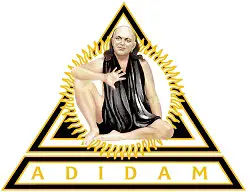
My experience of Adi Da has been a spiritual one, for I never spent time in his personal company outside of meditative darshans (or “sightings” in Sanskrit). Some were music and dance occasions, yet they were always filled with the most sublime loving energy I have ever witnessed in my life or read about in the historical record. For me, they felt more like breaking bread with Jesus or having Buddha grace his gatherings with visions of Nirvana; totally full of God-Light. Ecstatic but sober and calm; true beauty incarnated. That was my (and others) experiences around Adi Da, so I can never turn my back on that form of evidence nor betray what I witnessed in person. Yes, some people didn't get it; but some of us did. Yes, I have also heard he yelled at times, and could be very critical of people since they had come to him to have their ego healed and transcended. But in every case in which I have questioned the stories of people who were there, he was acting with love and compassion for each and every single individual in each and every case. Love dripped from his body-mind, quite literally. In fact, the stories of his incredible loving nature, his sweet and adorable happiness and care for all his devotees, for every human being to ever live, has been outstanding and exemplary, from all I have heard or witnessed. His graciousness and benign humor was genuine and real, yet still he acted without egoic motive, as those closest to him constantly claim. I cannot dismiss all of these people's accounts just because of a small number of disgruntled critics who were actually further on the outside than his inner circle of devotees. In fact, Adi Da only interacted with people who expressed a keen desire to spend time with him as their Guru, and who seemed mature enough to approach him in this sacred manner. Adi Da, therefore, was not a public figure garnering attention for himself, as most teachers do. Yet Adi Da was, and still can be, a challenge for the ego-self, that is undeniable, but that's his job, plain and simple. Thus his function as Sat-Guru is the most important and sacred function any human being can have in relation to another human being. He never took that lightly, and neither should we. Being in relationship with Adi Da is an ordeal, there's no doubt about that, since one's self-possession is revealed, but it's a sacred and enlightening ordeal as well, if you use it properly. It's actually, therefore, a wonderful opportunity for everyone. Some examples of recent books written by devotees will give a fuller account of Adi Da's intimate interactions with his devotees and the great gifts he provided them, as well as the challenges he presented in his demand for self-transcendence in Divine Communion with Real God, such as those listed below:
So what am I supposed to do? Believe stories that could never be verified to the degree the critics state? Take them out of context without understanding who told them and why? Sure, I have been concerned and never blindly believed anything, but, for me, evidence of Adi Da's authenticity has never been proven to be otherwise. When in his direct personal company, when his transmission is the strongest, I experienced and witnessed the most benign, loving, open heartfelt human being I have ever come close to meeting or reading about. And I have met some really beautiful people! Hence, my experience of Adi Da in no way, in over thirty years (I am now 60 years old), squared with him being justifiably called “narcissistic, abusive, and dysfunctional,” as Dr. Benjamin asserts. Thus, it seems to me that some people just hate gurus and will continue to mock one of the greatest Spiritual Teachers and Transmission Masters of all time. Maybe I'm wrong; maybe they're right; but maybe I'm not wrong and the guru-haters are wrong. My direct experience of God Itself, magnified in the Company of Adi Da Samraj, convinces me that I am not wrong and he is who he says he is. The most kind, loving people I know, sober people with great heart, my fellow devotees of Adi Da, have witnessed the same thing in His Company, so they confirm that what I've experienced is true for them as well. Therefore, I open-heartedly and sincerely encourage everyone to suspend their judgments and listen to this Sat-Guru, to discover for yourself who Adi Da really is and what his function is and what he can do in serving your own spiritual growth and enlightenment. This is why I did not bring up those negative reports: they do not seem true but rather are a reflection of reactivity egoity, not of the truth. To be forthcoming, I have, in the past, reviewed these negative postings (and David Lane's book) and their “evidence” very closely, for it's important to me, but I determined they are inaccurate exaggerations taken out of context. Then they tend to perpetuate themselves in slanderous excess. I do have serious problems with cults, and megalomaniacal leaders (including bad politicians) who abuse their followers, so I do not take such accusations lightly, and never have. I was around, for example, during the initial lawsuit against Adi Da back in 1985 (that was thrown out of court for lack of evidence), which began the cultic criticisms. I was close to several people involved, but never found any claims of abuse or coercion to be as stated. A more detailed description of the events surrounding this lawsuit, including a recant from the woman involved in placing the suit, can be found at this web site: In the community of Adidam (or the Free Communion Church, as it was known earlier) I have never been persuaded—let alone commanded—to do anything that I did not want to do in my natural service to Adi Da or his community. In fact, I have never been made to pay money or even give anything more than what was comfortable for me to give, and being a struggling artist, that has never been much. There have never been any complaints about that; nor was I ever pressured like other cults I have read about (such as in scientology). I have always been honored and respected and allowed to roam free as long as I showed respect for the sacred sites I was visiting (and honored the boundaries around certain areas). Every thing and every dollar has been freely given in response to what has been given to us. Nothing more, ever, from what I've experienced.
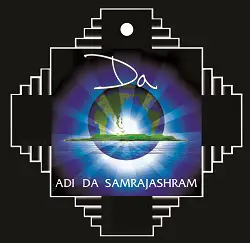
From what I've seen, Adi Da has provided a base of love and happiness for his community of devotees to live within and interact with each other. Every devotee that I have known or talked to has had basically the same experience: no one was ever forced, or even encouraged, to do anything beyond what was natural to them. If you over-committed yourself, you were always free to step back (and even leave). Yes, at times, if we had committed to certain service projects we could be encouraged to transcend our limitations and give more energy and time, but that was always rewarded with a deeper relationship and the happiness experienced in transcending our limited views of ourselves. In other words, it was never more demanding than some of the sport teams I have played for. Always, the only demand was to be happy and be always already related to the Sat-Guru Adept in a spiritual way, most fundamentally. My soul and spirit have been constantly refreshed and enlivened by my relationship to Adi Da Samraj, for which I am forever grateful. Consequently, I have concluded that these negative reviews of Adi Da come from people who are afraid of cults, often for justified reasons, but now have projected their fears, anger, and hatred onto Adi Da as an escape valve for their own doubts. In other words, I find these negative comments, often stated in a way to provoke fear, to be baseless, distorted, and simply untrue, especially in their most damaging and exaggerated claims. I have no intention here to list these complaints nor follow the trail of footnotes in order to counter their comments. My forthcoming books may do so in more detail, but again, from the evidence I have seen and witnessed, and from what I have received from Adi Da, I can only conclude these distorted assertions and negative projections are themselves part of the cult of guru-haters. They show no real respect for authentic gurus, from what I have read, little awareness of the true guru-devotee relationship over the centuries, and a basic ignorance of what a genuine Sat-Guru has to offer people. I base my respect for Gurus not only on my experience with Adi Da and his Teaching, but also on the historical record and sacred scriptures of the world's esoteric spiritual literature, East and West. All of the great literature of esoteric mysticism acknowledges the power, spiritual grace, and enlightened transmission of real genuine Awakened Adepts and that Guru Yoga (as the Tibetan Buddhists call it) is real and necessary for continued spiritual growth. They also explain how difficult a guru can be and how they will hurt your ego at times. It is to those sacred confessions that I find validity in the views I now hold, and to their defense I will adhere.
In fact, in his article critiquing my work, he admits he doesn't even understand what Adi Da is talking about when he reads his literature.
Nonetheless, I assume Dr. Benjamin's motives are basically sincere and come from concern for others, since we all know of countless abuses from those in higher offices of spiritual authority, from many actual cults with abusive figureheads, to even the sexual abuse of young children by Catholic priests, etc. It is a dangerous reality that must be acknowledged, especially by psychologists and any person concerned with people's mental and spiritual health. However, there is a huge difference between a downtown religionist and a Sat-Guru with yogic transmission powers. And mostly I do not see the critics make these distinctions. No doubt, in his mind Dr. Benjamin is trying to steer people away from spiritual exploitation, it's just that in Adi Da's case he has made an egregious error. In fact, in his article critiquing my work, he admits he doesn't even understand what Adi Da is talking about when he reads his literature—that alone, to me, is very revealing. How can he appreciate the profound function of a Sat-Guru if he can't even comprehend Adi Da's brilliant and unsurpassed writings, which most people familiar with spiritual literature, even his critics (like David Lane) admit is some of the best and most amazing spiritual literature ever produced? It's a contradiction that can't be overlooked. So no wonder he “hates” him and discourages others from taking up any type of relationship with the Sat-Guru. Granted, I understand that Adi Da's great spectrum of literature, written in nearly forty years and published in over sixty books, can be very difficult, especially as the decades went on and his use of unique capitalization increased. This is one reason why I want to address this subject in greater detail in my forthcoming books. From my view, it's best to approach Adi Da Samraj in stages. First, it would be best to concentrate on the “public” literature, which means reading some of the earlier books published in the first decade or so of his writings and talks. Some of these works have been upgraded to current standards, and generally are a great place to start, such as with My “Bright” Word (2005, a new version of The Method of the Siddhas from 1973) and My “Bright” Sight (2014, mostly a collection of early talks). For another example, see the web site Beezone for a comprehensive overview of Adi Da's writings and the Great Tradition in general. The Knee of Listening (1972, original edition; 2004 expanded edition) is Adi Da's autobiography, so it's one of the best places to start (as anyone's autobiography usually is, for it introduces the reader to key concepts). This book is where the Sat-Guru introduces us (and the world) to Radical Understanding, or the capacity to recognize the activity of the self-contraction, which he identifies with Narcissus, the Greek myth of the beautiful young man fascinated with his own reflection (like we are with ourselves). It is only when we understand the self-contraction as our own activity—often expressed in the form of “avoiding relationship”—that we become capable of transcending this self-generated activity and turn to love and God-Communion instead. As Dr. Benjamin found out (and stated in his essay) in no way is The Dawn Horse Testament (1985, original edition; 2005 expanded edition) a place to start, for it's a highly esoteric manual of practice meant for mature devotees. No wonder Dr. Benjamin didn't get it; but this is exactly why an advanced spiritual practitioner, like Ken Wilber, would profusely confess: “The Dawn Horse Testament is the most ecstatic, most profound, most complete, most radical, and most comprehensive single spiritual text ever to be penned and confessed by the Human-Transcendental Spirit.”[7] Pandit Wilber gets it!
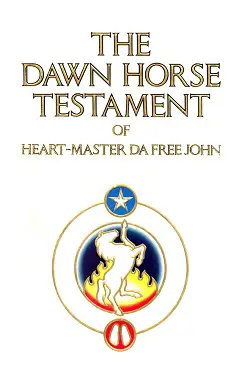
Nevertheless, it is a difficult book to read, unless a person has already been blessed to “see” Adi Da as a living Avatar, or a direct channel to the Divine Person or Enlightened Consciousness Itself—for that's who is really speaking through these books. The Dawn Horse is also when Adi Da began to use his unique and unconventional capitalization technique to set his Wisdom-Teaching apart from any before in human history. Yet, of course, this angered some people who had difficulty reading the books; however, I found they made perfect sense, from his point of view, so I just go with the flow. This degree of difficulty is also similar to Adi Da's recent voluminous texts, and magnum opus, The Aletheon (2009), The Gnosticon (2010), and The Pneumaton (2011), which are best reserved for those in more advanced stages of practice. Personally, I recommend all of them, but would suggest starting with the “beginner texts” that address Understanding, Satsang, and how to rightly approach an Awakened Sat-Guru. I would recommend, as a brief overview, the following written books by Adi Da Samraj as a way of entering into his stream of Enlightened Wisdom (these are my own scholarly recommendations, and do not necessarily represent the views of Adidam): Introductory Texts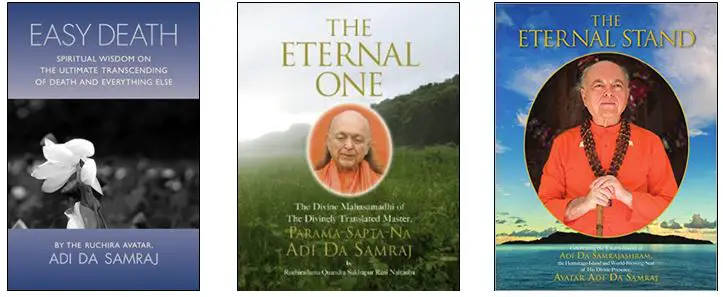 Beginner Texts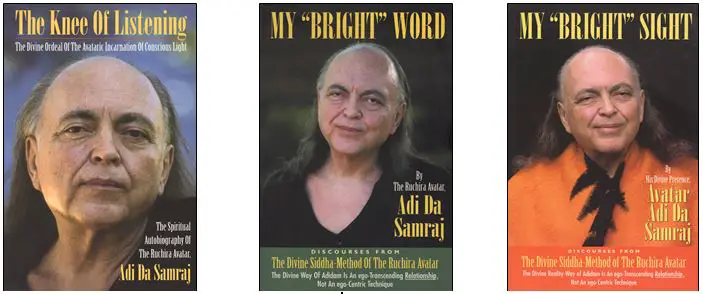 Semi-Advanced Texts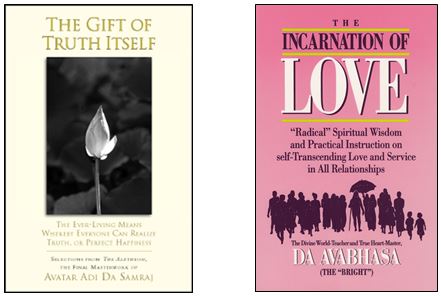 Political Texts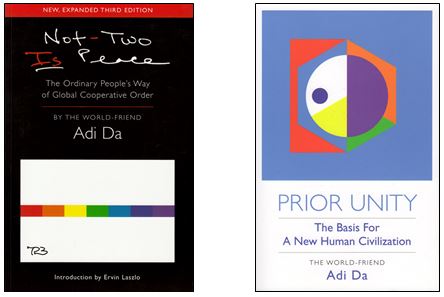 Advanced Texts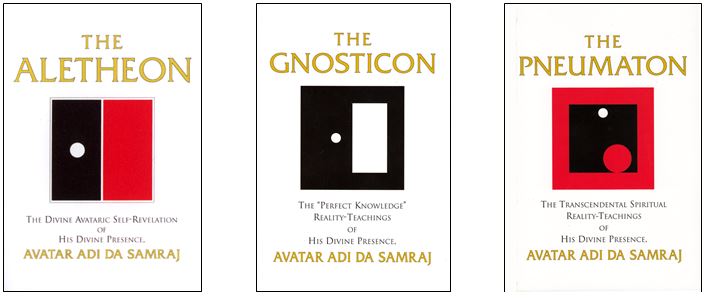 I have found that it's useful to recognize there are different levels of approach to Avatar Adi Da Samraj. This begins with the “listening” phase, or just studying His Word and considering His Argument. Then comes “hearing” or deeply understanding what his argument and consideration is about and how it applies to one's own life, for only then will a person be motivated to considered him as their Guru and take up the life disciplines of sadhana in Satsang. Yet, it's not until “seeing” or actually experiencing Adi Da as a Divine Agent of God that any person is really called to be a devotee. Only after directly experiencing the Sat-Guru's Transmission and realizing the value he may have in your life is a person encouraged to take up Satsang. Or at least that's Adi Da's recommendation, for he maintains practice is a recognition-response to his spiritual presence. This is, therefore, a very esoteric process, so no one is encouraged to take up the Way of Adidam until they are truly ready and willing. That does not sound like cultism to me. In my opinion, more than likely, many people will never get beyond the listening phase, or studying and reading the Sat-Guru's Enlightened Teaching. Yet, still, anyone seriously studying Adi Da should find numerous benefits of a spiritual nature being offered to them. But they need to be willing to at least engage an authentic degree of commitment and study, and transcend their anger and cultic fears, for there is nothing quite like this teaching and teacher on the planet. Yet, very few will take up this chore if they're being unjustifiably scared away by some people's poor opinion of who Adi Da truly is. That's why I'm motivated to speak out. Ultimately, of course, I can only speak for myself. And for me, the American-born Adept Avatar Adi Da Samraj (born as Franklin Albert Jones on Long Island, New York) has taught me more about God, more about the truth of God as Consciousness and “Conscious Light” (in his words), more about my capacity to love and be at peace with where I am, than any other Adept in the history of the world. And I love Buddha and Jesus! And Padmasambhava, Bodhidharma, Hui-Neng, Plotinus, Hermes Trismegistus, Ramana Maharshi, Vivekananda, Shankara, Kabir, Ribhu, Rumi, Neem Karoli Baba, and so on and on. I love all of the Enlightened Masters, and have studied them all, from Lao Tzu to Paramahansa Yogananda, but no one speaks English as well, fills in all the minor details, and offers me more spiritual presence than does His Divine Presence Avatar Adi Da Samraj! So I can do nothing less than confess this simple truth… you can decide to “hate” me because I love Him, but that's okay. We still love you. 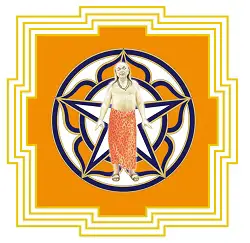 REFERENCES
|

